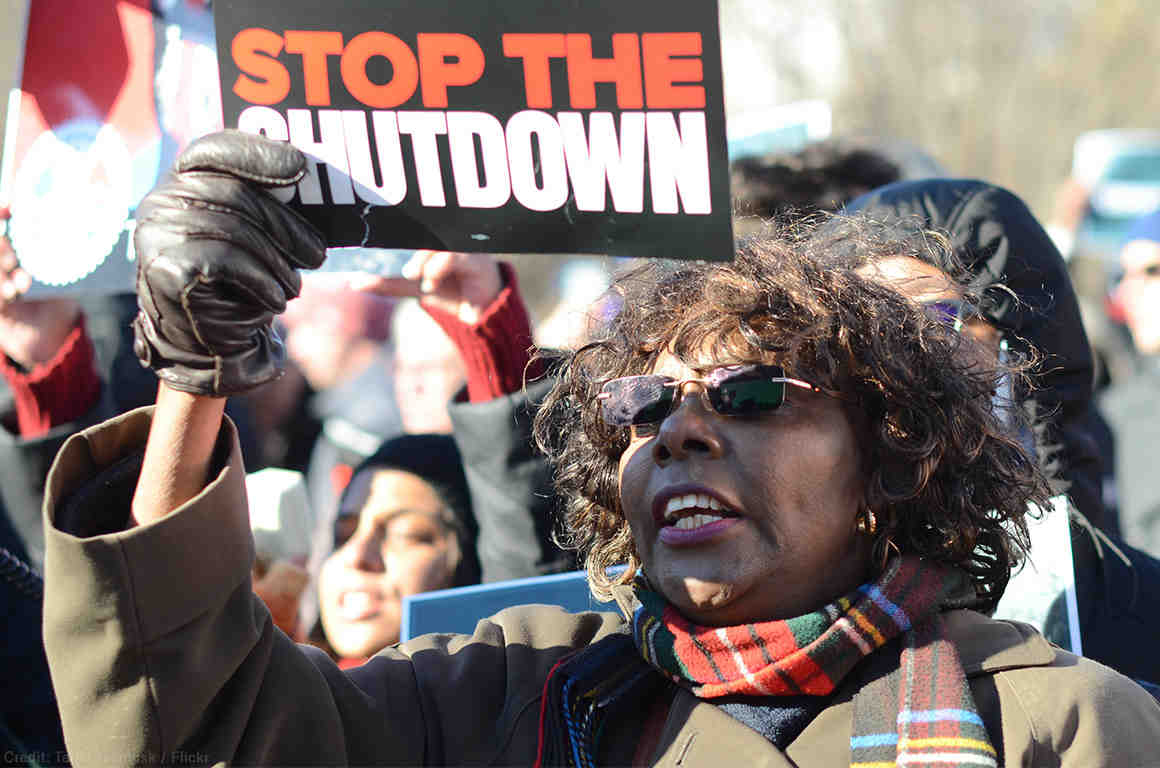The 2019-2020 legislative session is underway! Can you join us for our first legislative action of the new year? We will be hosting two phone banks this month to generate calls to legislators to ask them to co-sponsor ACLU priority legislation. This is our first opportunity to demonstrate constituent support for ACLU priorities. Our priorities will center on technology and civil rights, smart justice, immigrant protections, reproductive justice, and voting rights.
Please plan to bring a cell phone and a laptop or tablet with you.
Event Date
Thursday, January 24, 2019 - 6:00pm to
Friday, January 25, 2019 - 8:45pm
Featured image
More information / register
Venue
ACLU of Massachusetts (Boston Office)
Address
Boston, MA 02110
United States
Tweet Text
[node:title]
Date
Thursday, January 24, 2019 - 9:00pm
Menu parent dynamic listing
By Andrew Malone, Staff Attorney, ACLU of South Dakota. This blog was originally posted on ACLU's Speak Freely.
Standing up for your First Amendment right to protest can be challenging — especially if you’re a government employee.
Since Dec. 22, nearly 800,000 government employees nationwide have been affected by the partial federal government shutdown, putting a stop to work and paychecks. Despite President Trump’s claim that federal workers “agree 100 percent with what I’m doing,” many have wondered about their right to protest during the shutdown — and whether there could be workplace retaliation for doing so.
Here are some answers.
Can federal workers organize a protest to convince government leaders to end the shutdown?
Yes. While federal employees are subject to certain restrictions of their First Amendment free speech rights while functioning in their official capacity, they still retain the right to engage in free speech activities as private individuals.
That said, it would be smart to check any employment policies that may apply to ensure that such speech and expressive activity is not listed as a violation of an employee handbook or code of conduct. If such policies cover private speech on a matter of public concern, they are likely unconstitutional, but the government may nevertheless attempt to invoke them.
Can federal workers protest during the shutdown without repercussion?
The Supreme Court has repeatedly held that people do not surrender their First Amendment rights by accepting public employment. Courts have drawn a line between work time and private time, so any restrictions about what a federal government employee can do in their personal time would be problematic. But if a federal worker organizes a protest, it is important to make it clear that the participants are doing so on their own time and not in their official capacities.
What is the Hatch Act and how does it affect federal workers?
The Hatch Act prevents certain federal employees from engaging in partisan political activities, such as engaging in partisan actions while on duty or using the employee’s official authority to affect the outcome of an election. However, the law does not prohibit federal employees from engaging in a protest or speaking out on a political issue outside of work hours.
Can a federal worker talk to the media about the shutdown?
When federal workers are speaking as government representatives in connection with their official duties, then the government has a much greater ability to regulate such speech. But when federal workers speak as private individuals and outside of the scope of their employment, then they retain the usual First Amendment protections.
That means that while the government may be able to limit federal workers from speaking out about their problems with particular coworkers or internal management decisions by their supervisors, for example, the government certainly can’t prohibit a federal worker from talking about how the shutdown has affected their life — for example, having difficulty paying bills or stress at home.
Can the government regulate the speech of any federal worker?
The government may claim it has additional power to regulate the speech of certain high-level officials because such positions require personal loyalty and confidence for proper functioning. This makes it more difficult for such employees to know when their speech is subject to regulation.
Overall, the First Amendment right to join together in protest or peaceful assembly is critical to a functioning democracy. These protests reflect the profound importance of our constitutional right to peaceful assembly where people come together, voice their dissent, and organize for change.
Date
Friday, January 11, 2019 - 11:30am
Featured image
Show featured image
Hide banner image
Related issues
Free Speech and Expression
Show related content
Tweet Text
[node:title]
Type
Style
Standard with sidebar
Blog by Neema Singh Guliani, ACLU Senior Legislative Counsel & Brian Tashman, Political Researcher and Strategist, ACLU. Originally published on ACLU's Speak Freely.
William Barr, President Trump’s nominee for attorney general, has a history of getting it wrong. From designing warrantless surveillance programs to justifying the president’s power to disregard acts of Congress, Barr has advanced dubious legal theories that have been rejected by the courts, Congress, and the public.
As Barr begins the confirmation process, senators must question Barr on his record regarding the right to privacy and the Fourth Amendment — which raises serious concerns about his suitability to be attorney general. Barr has violated or supported violations of Americans constitutional rights, leaving a disastrous legacy of warrantless spying and government abuse.
Barr was the godfather of the NSA’s bulk data collection program
While serving in the George H.W. Bush administration, Barr helped develop what became a “blueprint” for the National Security Agency’s mass phone surveillance program. In 1992, he and his then-deputy Robert Mueller authorized the Drug Enforcement Administration to begin amassing phone call data in bulk, orderingtelephone companies to secretly hand over the records of all phone calls from the U.S. to countries — which eventually grew to be well over 100 nations — where the government believed drug traffickers were operating.
As USA Today reported when the DEA program came to light, it “was the government’s first known effort to gather data on Americans in bulk, sweeping up records of telephone calls made by millions of U.S. citizens regardless of whether they were suspected of a crime.”
The DEA program ultimately became a model for the NSA’s phone records collection program under the Patriot Act of 2001, which the agency used to collect the domestic call records of tens of millions of Americans. The NSA program, exposed by NSA whistleblower Edward Snowden, was found to be illegal by a federal appeals court, and in 2015 Congress voted on a bipartisan basis to partially reform it. Barr, unsurprisingly, was an ardent supporter of the Patriot Act when it was enacted. In fact, he said the law didn’t go far enough.
Congress should question Barr about whether he will be a roadblock to still-needed surveillance reforms and whether he believes the government has the power to resurrect or expand warrantless spying programs.
Barr worked to make it easier for Verizon and other companies to hand over massive amounts of sensitive customer data to the government
In the George W. Bush era, during which Barr served as executive vice president and general counsel at Verizon, the telecom giant participated in a massive, warrantless surveillance program known as Stellar Wind. Under Barr’s watch, Verizon allowed the NSA to intercept the contents of Americans’ phone calls and emails and to vacuum up in bulk the metadata associated with Americans’ phone calls and internet activities.
This surveillance was prohibited by the Foreign Intelligence Surveillance Act (FISA), which Congress passed to regulate government surveillance practices and prevent abuses. The Justice Department eventually concluded in 2004 that portions of the program were illegal. Exact dates of Verizon’s involvement are not known, though documents suggest they participated at least as early as 2007. Other portions proved to be a forerunner of the NSA’s Upstream surveillance program, which the government continues to use today to unlawfully search Americans’ emails and internet communications without a warrant.
As Verizon’s general counsel, Barr later lobbied Congress to give telecom companies retroactive and future immunity from private lawsuits for participating in illegal surveillance programs, which would make sure that companies like Verizon would never be held accountable for helping the government violate Americans’ privacy.
Barr himself has held the legal position that Americans do not have a Fourth Amendment-protected privacy interest in data held by third parties — a view that the Supreme Court declined to adopt in last year’s pro-privacy ruling about cellphone location tracking by police.
Senators should question Barr on whether he still holds the position that individual’s do not have a Fourth Amendment-protected interest in information held by third parties. In addition, they should question whether he will support actions that widen the surveillance dragnet, as his history at Verizon suggests that he will have few qualms about conscripting other private companies — including tech giants like Facebook and Google — into handing over private user information to the government.
Barr has defended the president’s power to disregard laws passed by Congress
Barr is also an advocate of sweeping executive authority, which would have major implications for oversight. In a 1989 memo, Barr, then serving as assistant attorney general for the Justice Department’s Office of Legal Counsel, raised doubts about the ability of Congress to limit the executive branch’s powers, and he has even argued that the FISA law is too restrictive and that the president can disregard its limits under the guise of fighting terrorism.
As long as the president invokes national defense, Barr believes an administration could embark on virtually any endeavor. This philosophy helped lend credence to the radical theory that the executive branch has nearly unlimited counterterrorism powers that Congress cannot regulate, which is shared by the likes of John Yoo, who in the George W. Bush administration worked to justify the Stellar Wind program and torture.
This theory could be used as justification to flout laws passed by Congress addressing everything from foreign policy to immigration to domestic law enforcement.
The future of privacy rights
The Trump administration, with help from Congress, has already done grave harm to our right to privacy. While Trump has raised concerns about perceived surveillance abuses, albeit often with falseand misleading claims, he signed into law the FISA Amendments Reauthorization Act, which arguably codified and expanded certain surveillance powers.
Barr’s nomination is more evidence that the Trump administration will continue to pursue vast surveillance powers at the expense of our Fourth Amendment rights and will have little respect for Congress’ power. Members of the Senate Judiciary Committee must seize their opportunity to question Barr thoroughly and determine whether he will protect Americans from government intrusions and expansive executive power if he’s returned to run the Justice Department for a second time.
Learn about our work on privacy and surveillance issues
Date
Wednesday, January 9, 2019 - 4:00pm
Featured image
Show featured image
Hide banner image
Related issues
Privacy and Surveillance
Show related content
Tweet Text
[node:title]
Type
Menu parent dynamic listing
Style
Standard with sidebar
Pages


